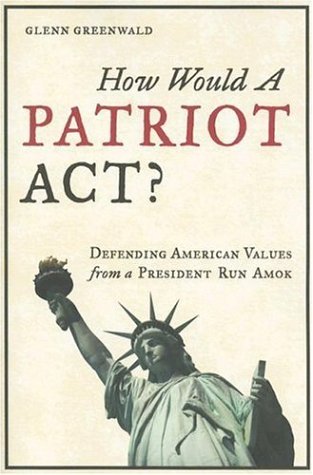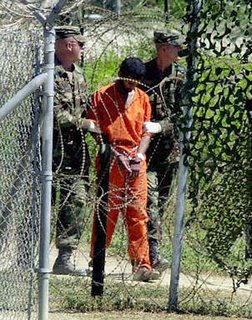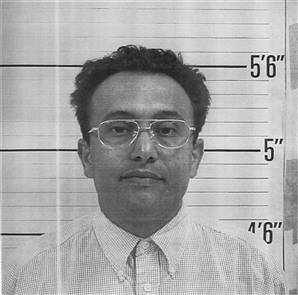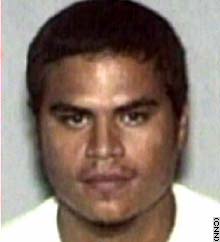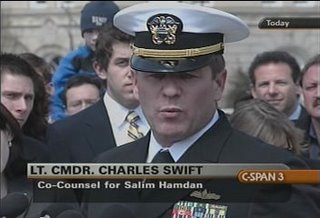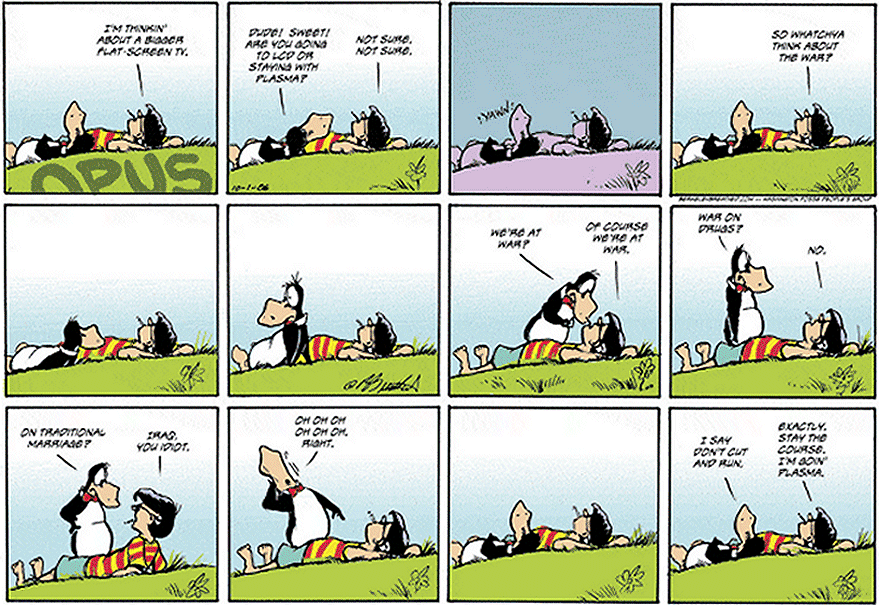
In 2002,
Reporters San Frontiers (RSF, or "Reporters Without Borders," in English) created an
index of press freedom designed to rank freedom of the press in each of the world's nations . Each year since then, RSF has updated the index, and the United States, initially pegged as having the 17th-most free press in the world, has slipped further down the ranks every year since. Alarmingly, this year's index puts the U.S. at number 53, behind former communist bloc countries like
Estonia, the
Czech Republic and
Hungary, as well as other nations with histories of authoritarianism like
El Salvador,
Bolivia,
Chile and
South Africa.
RSF acknowledges that armed conflict is always the bane of a free press, even in countries with a traditionally strong
Fourth Estate, but adds:
Relations between the media and the Bush Administration sharply deteriorated after the president used the pretext of “national security” to regard as suspicious any journalist who questioned his “war on terrorism.” The zeal of federal courts which, unlike those in 33 U.S. states, refuse to recognise the media’s right not to reveal its sources, even threatens journalists whose investigations have no connection at all with terrorism.
The RSF index serves to call attention to the most direct assaults on press freedom, such as
reporter intimidation and imprisonment, but it explicitly states that the freedom rankings should in no way be considered a measure of the quality of the press in each country that is evaluated. As important as the current administration's assault on the
First Amendment is, it is not the whole story. Of at least equal importance is the role of increasingly consolidated media ownership that followed in the wake of the
1996 Telecommunications Act, and the further consolidation of information power that has been championed by the Bush White House.
Originally intended to spur innovation and competition, benefitting consumers through the resultant drop in prices, the Telecom Act was heavily influenced by lobbyists, and it is media companies that have been the biggest beneficiaries (from
Common Cause):
- Currently, six major companies control most of the media in the United States. Disney owns 10 television stations, 50 radio stations, ABC, ESPN, A&E, the History Channel, Discover magazine, Hyperion publishing, Touchstone Pictures, and Miramax Film Corporation. Viacom owns 39 television stations, 184 radio stations, CBS, The Movie Channel, BET, Nickelodeon, TV Land, MTV, VH1, Simon & Schuster, Scribner, and Paramount Pictures. General Electric owns 13 television stations, NBC, CNBC, MSNBC, and Bravo. News Corporation owns 26 television stations, Fox Broadcasting, FX, Fox News Channel, TV Guide, The Weekly Standard, The New York Post, DirecTV, HarperCollins, Twentieth Century Fox and MySpace.
- Since 1995, the number of companies that own commercial television stations has declined by 40 percent, and three media giants own all of the cable news networks. Comcast and Time Warner serve 40% of cable households, and cable television rates have climbed 40 percent since the 1996 Telecom Act.
- The Telecommunications Act of 1996 removed restrictions on the number of radio stations that can be owned by a single entity, leading to significant consolidation. Where previously, one company could not own more than 40 radio stations nationwide, today, Clear Channel Communications alone now owns almost 1,200 stations across the country.
- Major corporations, including Time Warner, The New York Times, CNN, ABC News and USA Today dominate the top Internet news sites.
- Single-company ownership of media in a given market would have been permitted to rise to 45% from 35 percent, and restrictions on single-company ownership of newspapers and TV stations in the same market would have been removed.
- All TV channels, magazines, newspapers, cable, and internet services would be counted and weighted, based on the public's "tendency" to find news on that medium. Concurrently, news content for a given channel would no longer be considered when evaluating the percentage of a medium owned by a single entity. In other words, it would now be possible for two companies to each own as much as 45% of all the newspapers, local television stations, national TV networks, and local radio stations in any given market, so long as other companies owned properties such as shopping channels, educational television, and at least 10% of other non-news outlets.
- Finally, and perhaps in the most direct conflict with the importance of an informed populace to a functioning democracy, public-interest considerations would have been removed from requirements for periodic review of ownership licenses.
Despite the highly questionable connection between the interests of the citizenry and these proposed changes, Powell held just one public hearing on the matter, and only after significant outcry. Despite overwhelmingly negative reaction to the new rules, the Powell-led FCC pushed through the rule changes and refused to open them to public comment. Powell's end-around was quashed however, when Congress overruled his changes in the face of outrage from its constituents.
Today, new FCC Chairman
Kevin Martin has restarted the efforts of his predecessor to revise the nation's media ownership rules. While he has promised significant public input this time around, it is difficult to discern how further consolidation would benefit anyone other than media owners. If anything, media ownership rules should be made more restrictive than allowed by the 1996 Telecom Act, not less.
Significant censorship by broadcasters has occurred on numerous occasions in the past several years, and it has almost universally favored the Bush Administration and its supporters. In 2003, several stations
refused to air ads by
Arianna Huffington's
Detroit Project; in 2004,
CBS rejected a Super Bowl ad from
MoveOn.org that criticized the exploding federal budget deficit; and later that year, both CBS and
NBC denied access to the airwaves for an
ad from the
United Church of Christ touting their acceptance of gays and lesbians. All of these advertisements were simply deemed "too controversial" by the media owners, and quashed by fiat.
Perhaps most famously however, several radio stations owned by
Cumulus Media, the second-largest owner of radio stations in the country, along with a number of Clear Channel affiliates, banned the
Dixie Chicks from their playlists because of critical comments about President Bush made by lead singer Natalie Maines in the run-up to the
Iraq War, with Cumulus even going so far as to organize a Dixie Chicks CD burning.
To be sure, there is nothing wrong with the owners of private companies working to ethically maximize profits within the law. Broadcast media outlets however, are not strictly private companies, as they depend on a public asset, and the
law is more than clear about the responsibilities of those using seeking license to use the airwaves.
The citizenry has left little room for doubt that it believes that further consolidation would be bad for the country on a number of fronts, and it is supported in that view by a host of organizations that advocate good government. Even the Walt Disney Company has recently submitted
comments that it "is not advocating and does not seek any relaxation of the Commission's Broadcast Ownership Rules."
Given widespread public resistance, a history of congressional opposition, and now, diminishing advocacy from media companies themselves, it almost without question that attempts at further consolidation are nothing more than elements of the current administration's quest to accrue power to the presidency and its wholesale assault on civil liberties. It is important then, to recall the opinion of the
U.S. Supreme Court in the landmark 1969 case
Red Lion Broadcasting v. FCC:
It is the purpose of the First Amendment to preserve an uninhibited marketplace of ideas in which truth will ultimately prevail, rather than to countenance monopolization of that market, whether it be by the Government itself or a private licensee. It is the right of the public to receive suitable access to social, political, esthetic, moral, and other ideas and experiences which is crucial here. That right may not constitutionally be abridged either by Congress or by the FCC.
Freedom of the press is one of the cornerstones of democracy, and attempts to abridge it - whether through direct intimidation or through control by interests aligned with the government - must always be combated. Vigilance - and
action - are required.
